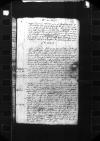Wir haben negst aus superinscribed⌈ausaus superinscribed⌉ E(wer) H(erlichkei)t cf. Achatius von ZEHMEN (CEMA) to Ioannes DANTISCUS before 1545-03-21, CIDTC IDL 6942, letter lost⌊schreibn(n)cf. Achatius von ZEHMEN (CEMA) to Ioannes DANTISCUS before 1545-03-21, CIDTC IDL 6942, letter lost⌋ gern(n) vorstanden(n), / das der nicht widrig ist, / was wir Sigismund I Jagiellon (Zygmunt I) (*1467 – †1548), King of Poland and Grand Duke of Lithuania (1506-1548); Duke of Głogów (Glogau) (1499-1506), Duke of Opava (1501-1506), Governor of Silesia (1504-1506); son of King Kazimierz IV Jagiellon and Elisabeth of Austria⌊ko(nigliche)r m(ajeste)tSigismund I Jagiellon (Zygmunt I) (*1467 – †1548), King of Poland and Grand Duke of Lithuania (1506-1548); Duke of Głogów (Glogau) (1499-1506), Duke of Opava (1501-1506), Governor of Silesia (1504-1506); son of King Kazimierz IV Jagiellon and Elisabeth of Austria⌋, u(nserm) a(llergnedigsten) h(e)rn, von unsern(n) allen(n) weg(en) Council of Royal Prussia the most important local authority in Royal Prussia. It consisted of two bishops (of Ermland (Warmia), who served as the Council’s president, and of Kulm (Chełmno)), three voivodes (of Kulm, Marienburg (Malbork), and Pomerania), three castellans (of Kulm, Elbing (Elbląg), and Gdańsk (Danzig)), three chamberlains (of Kulm, Marienburg, and Pomerania), and representatives of the three Great Prussian Cities – Gdańsk, Thorn (Toruń), and Elbing (ACHREMCZYK 2016, p. 17-18)⌊disser(r) lande retheCouncil of Royal Prussia the most important local authority in Royal Prussia. It consisted of two bishops (of Ermland (Warmia), who served as the Council’s president, and of Kulm (Chełmno)), three voivodes (of Kulm, Marienburg (Malbork), and Pomerania), three castellans (of Kulm, Elbing (Elbląg), and Gdańsk (Danzig)), three chamberlains (of Kulm, Marienburg, and Pomerania), and representatives of the three Great Prussian Cities – Gdańsk, Thorn (Toruń), and Elbing (ACHREMCZYK 2016, p. 17-18)⌋ / uff das schreibn(n) in gehalten rechtstage on the margin⌈in gehalten rechtstagein gehalten rechtstage on the margin⌉ zum Elbing (Elbląg), city in northern Poland, Pomerania, on the Vistula Lagoon, one of the three Great Prussian Cities (beside Gdańsk (Danzig) and Thorn (Toruń)) which had representatives in the Prussian Council; member of the Hanseatic League⌊ElbingElbing (Elbląg), city in northern Poland, Pomerania, on the Vistula Lagoon, one of the three Great Prussian Cities (beside Gdańsk (Danzig) and Thorn (Toruń)) which had representatives in the Prussian Council; member of the Hanseatic League⌋ habn(n) superinscribed⌈habn(n)habn(n) superinscribed⌉ geantwurt, / anders hab(?) si uns hoch uns nicht wold fuegen(n), / weil sich die czeit dermossen(n) vorloffen(n) von allerwegen superinscribed in place of crossed-out von uns⌈von uns von allerweg(en) von allerwegen superinscribed in place of crossed-out von uns⌉ zu schreibn(n). / Was uns daruff zum bericht / von(n) hochgemelter Sigismund I Jagiellon (Zygmunt I) (*1467 – †1548), King of Poland and Grand Duke of Lithuania (1506-1548); Duke of Głogów (Glogau) (1499-1506), Duke of Opava (1501-1506), Governor of Silesia (1504-1506); son of King Kazimierz IV Jagiellon and Elisabeth of Austria⌊ko(nigliche)r m(ajeste)tSigismund I Jagiellon (Zygmunt I) (*1467 – †1548), King of Poland and Grand Duke of Lithuania (1506-1548); Duke of Głogów (Glogau) (1499-1506), Duke of Opava (1501-1506), Governor of Silesia (1504-1506); son of King Kazimierz IV Jagiellon and Elisabeth of Austria⌋ wirt zu komen(n), / wolle wir E(wer) H(erlichkei)t mir den erst(en) nicht vorhalt(en), / freuntlich bittend, / so noch etwas zcwisschen uns der alt(en) fr vortrauter freuntlicheit stelle hat, / wie wir uns vor sehen(n), / wolde uns [d]urch eig(enen) bot(en) on the margin⌈d hidden by binding⌈[d]d hidden by binding⌉urch eig(enen) bot(en)[d]urch eig(enen) bot(en) on the margin⌉ uff unser unkost, / die wir statlich wolln(n) erlegn(n), / lossen wissen(n). / Wie es Sigismund I Jagiellon (Zygmunt I) (*1467 – †1548), King of Poland and Grand Duke of Lithuania (1506-1548); Duke of Głogów (Glogau) (1499-1506), Duke of Opava (1501-1506), Governor of Silesia (1504-1506); son of King Kazimierz IV Jagiellon and Elisabeth of Austria⌊ko(nigliche)r m(ajeste)tSigismund I Jagiellon (Zygmunt I) (*1467 – †1548), King of Poland and Grand Duke of Lithuania (1506-1548); Duke of Głogów (Glogau) (1499-1506), Duke of Opava (1501-1506), Governor of Silesia (1504-1506); son of King Kazimierz IV Jagiellon and Elisabeth of Austria⌋ in gesuntheit erghet, / hie komen(n) an uns superinscribed⌈an unsan uns superinscribed⌉ zcweifelhafftige mhere, / wie wol wir vor XIIII tage brive habn(n) ann superinscribed in place of crossed-out von(n)⌈von(n) an(n) ann superinscribed in place of crossed-out von(n)⌉ ko(nigliche)m hove gegebn(n) superinscribed⌈gegebn(n)gegebn(n) superinscribed⌉, / das ire ko(niglich)e m(ajeste)t etwan(n) an der alt(en) seuchen des zcehes / svach gewesen(n), / aber sonst in gutter, / dem(m) alter noch, / gesuntheit sey ge sich hab enthalt(en). / Was uns noch wirt zu komen(n), / wolle wir E(wer) H(erlichkei)t, / die wir gotlichn(n) gnad(en) befelen(n), / nicht unangeczeigt lossen(n). /

 AAWO, AB, D. 7, f. 46r (b.p.)
AAWO, AB, D. 7, f. 46r (b.p.)